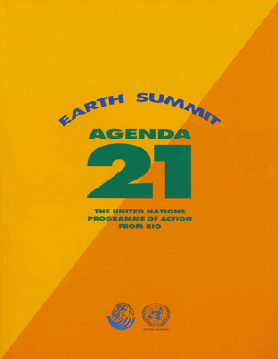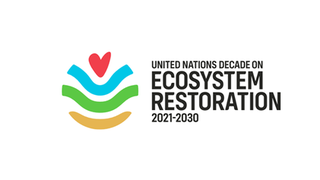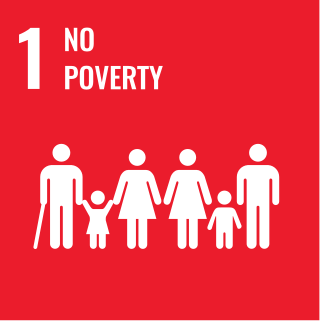
The United Nations Economic and Social Council is one of the six principal organs of the United Nations, responsible for coordinating the economic and social fields of the organization, specifically in regards to the fifteen specialised agencies, the eight functional commissions, and the five regional commissions under its jurisdiction.

Agenda 21 is a non-binding action plan of the United Nations with regard to sustainable development. It is a product of the Earth Summit held in Rio de Janeiro, Brazil, in 1992. It is an action agenda for the UN, other multilateral organizations, and individual governments around the world that can be executed at local, national, and global levels. One major objective of the Agenda 21 initiative is that every local government should draw its own local Agenda 21. Its aim initially was to achieve global sustainable development by 2000, with the "21" in Agenda 21 referring to the original target of the 21st century.
The consultative status is a phrase that has been in use since the establishment of the United Nations and is used within the UN community to refer to "Non-governmental organizations (NGOs) in Consultative Status with the United Nations Economic and Social Council". Also some international organizations could grant Consultative Status to NGOs. Organization for Security and Co-operation in Europe (OSCE) could grant Consultative Status in the form of "Researcher-in-residence programme" : accredited representatives of national and international NGOs are granted access to all records and to numerous topical compilations related to OSCE field activities.
The United Nations Commission on Sustainable Development (CSD) was a body under the UN Economic and Social Council (ECOSOC) tasked with overseeing the outcomes of the 1992 United Nations Conference on Environment and Development/Earth Summit. It was replaced in 2013 by the High-level Political Forum on Sustainable Development, which meets both under the General Assembly every four years and the ECOSOC in other years.
The United Nations Volunteers (UNV) programme is a United Nations organization that contributes to peace and development through volunteerism worldwide.
The United Nations Guidelines for Consumer Protection (UNGCP) relate to consumer protection goals. The statement supplied is that the guidelines are "a valuable set of principles for setting out the main characteristics of effective consumer protection legislation, enforcement institutions and redress systems and for assisting interested Member States in formulating and enforcing domestic and regional laws, rules and regulations that are suitable to their own economic and social and environmental circumstances, as well as promoting international enforcement cooperation among Member States and encouraging the sharing of experiences in consumer protection."

The United Nations Office for Disaster Risk Reduction (UNDRR) was created in December 1999 to ensure the implementation of the International Strategy for Disaster Reduction.

In the United Nations, the Post-2015 Development Agenda was a set of talks and discussion that led to the creation of the 2016 Sustainable Development Goals. This replaced the 2015 Millennium Development Goals.

The United Nations created 17 world development goals call the Sustainable Development Goals (SDGs). They were created in 2015 with the aim of "peace and prosperity for people and the planet, now and into the future."

Established in 1992, the Major Group for Children and Youth is the United Nations General Assembly mandated, official, formal and self-organised space for children and youth to contribute to and engage in certain intergovernmental and allied policy processes at the United Nations.

The Republic of Kazakhstan became a member of the United Nations on March 2, 1992. Kazakhstan was elected to serve on the UN Security Council for the 2017–2018 term. UN Secretary-General António Guterres in remarks to the UNSC recognized Kazakhstan's work to rid the world of weapons of mass destruction and global non-proliferation efforts.

The Commission on Crime Prevention and Criminal Justice (CCPCJ) is a functional commission of the United Nations Economic and Social Council (ECOSOC) based in Vienna. The commission serves as the primary organ that guides the activities of the United Nations in the fields of crime prevention and criminal justice.
The Addis Ababa Action Agenda was the outcome of the 2015 Third International Conference on Financing for Development, held in Addis Ababa, Ethiopia. It was adopted by heads of state and government on 15 July 2015. 174 United Nations member states sent delegations; 28 heads of State, vice presidents and heads of government attended. Governments were joined by the heads of the United Nations, the International Monetary Fund (IMF), the World Bank and the World Trade Organization (WTO), prominent business and civil society leaders, and other stakeholders. The agreement is a follow-up to the 2002 Monterrey Consensus and the 2008 Doha Declaration on Financing for Development.

The United Nations Decade on Ecosystem Restoration runs from 2021 to 2030. Similar to other nature related international decades, its purpose is to promote the United Nation's environmental goals. Specifically, to facilitate global cooperation for the restoration of degraded and destroyed ecosystems. Along with fostering efforts to combat climate change, safeguard biodiversity, food security, and water supply. While much focus is on promoting restoration activity by national governments, the UN also wishes to promote such efforts from other actors, ranging from the private sector and NGOs to regular individuals.

Endorsed in December 2017, the United Nations Decade of Family Farming 2019-2028 seeks to place family farming at the center of national public policies and investments. In declaring this decade, the United Nations General Assembly recognized the importance of family farming in reducing poverty and improving global food security. The UN Decade of Family Farming is led by the Food and Agriculture Organization (FAO) and the International Fund for Agricultural Development (IFAD) in collaboration with governments and civil society organizations.

Sustainable Development Goal 9 is about "industry, innovation and infrastructure" and is one of the 17 Sustainable Development Goals adopted by the United Nations General Assembly in 2015. SDG 9 aims to build resilient infrastructure, promote sustainable industrialization and foster innovation.

Sustainable Development Goal 7 is one of 17 Sustainable Development Goals established by the United Nations General Assembly in 2015. It aims to "Ensure access to affordable, reliable, sustainable and modern energy for all." Access to energy is an important pillar for the wellbeing of the people as well as for economic development and poverty alleviation.

Sustainable Development Goal 2 aims to achieve "zero hunger". It is one of the 17 Sustainable Development Goals established by the United Nations in 2015. The official wording is: "End hunger, achieve food security and improved nutrition and promote sustainable agriculture". SDG 2 highlights the "complex inter-linkages between food security, nutrition, rural transformation and sustainable agriculture". According to the United Nations, there are around 690 million people who are hungry, which accounts for slightly less than 10 percent of the world population. One in every nine people goes to bed hungry each night, including 20 million people currently at risk of famine in South Sudan, Somalia, Yemen and Nigeria.

Sustainable Development Goal 1, one of the 17 Sustainable Development Goals established by the United Nations in 2015, calls for the end of poverty in all forms. The official wording is: "No Poverty". Member countries have pledged to "Leave No One Behind": underlying the goal is a "powerful commitment to leave no one behind and to reach those farthest behind first".

Sustainable Development Goals and Nigeria is about how Nigeria is implementing the Sustainable Development Goals within the thirty-six states and its Federal Capital Territory (FCT). The Sustainable Development Goals (SDGs) consist of seventeen global goals designed as a "blueprint to achieve a better and more sustainable future for all". Each of the 17 goals is expected to be achieved by 2030 in every country around the world.













